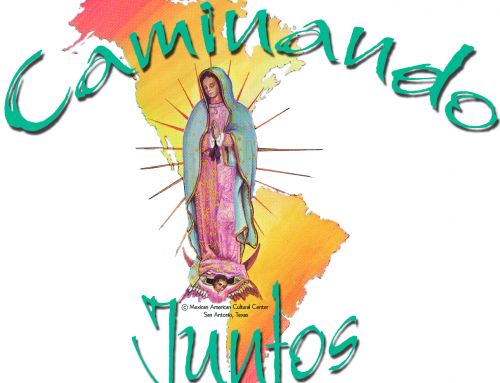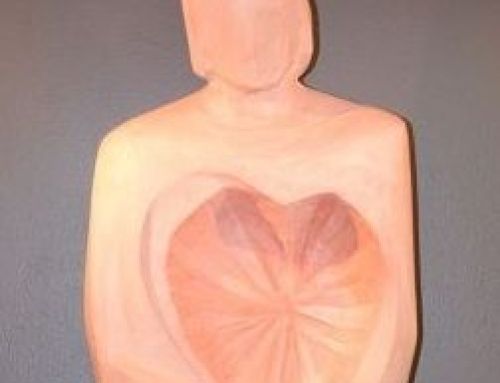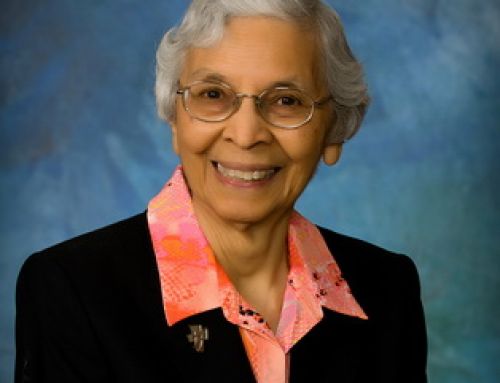On January 1, 2002, the Presentation Sisters endorsed this statement opposing the death penalty:
“We, the Sisters of the Presentation of the Blessed Virgin Mary of Aberdeen, SD, believe that the death penalty is immoral and should be abolished. As women committed to nonviolence, we seek a penal system that supports conversion and reconciliation, rather than one that perpetuates the cycle of violence and vengeance. We believe the death penalty flows from the assumption that problems in our society will be resolved through violent means, which is the same assumption that led to the attacks of September 11, 2001.
We support a consistent ethic of life, believing that all life is sacred from the moment it begins until its natural death. The death penalty promotes the idea that the life of the condemned is no longer sacred in the eyes of God. We believe that all persons are redeemable and loved by God.”
South Dakota Catholic Conference
Statement from the Roman Catholic Bishops of South Dakota
Regarding the Execution of Rodney Berget
October 25, 2018
Thursday of the Twenty-ninth Week in Ordinary Time
Following the issuance of a Warrant of Execution, the state of South Dakota intends to execute inmate Rodney Berget during the week of October 28, 2018. As the Roman Catholic Bishops of the Dioceses of Rapid City and Sioux Falls, we recall once more our statements on
the death penalty issued during the 2012 and 2016 legislative sessions, and our public support of a 2018 legislative proposal for a limited repeal of the death penalty’s application. Now, as in our previous statements, we repeat the Church’s perennial call for a culture of life, and in so doing, we firmly oppose the death penalty as an unnecessary tool of redress available to our criminal
justice system.
We express once again the inadequacies we shared in 2016, when we stated, “it is impossible for most of us to fully relate to the depth of horror that the brutal murder of a loved one brings upon family and friends.” Such sentiments of horror, anger, and repulsion are natural
and understandable. Confronted with painful and depraved crimes, and with profound compassion for suffering families of crime victims, the Psalmist’s words arise, “How long must I bear pain in my soul, and have sorrow in my heart all the day?”1 The suffering of those affected
by unspeakable crimes weighs heavily on our hearts. Our support and prayers are with those who suffer such loss. We pray especially for the consolation that comes from knowing that those who suffer are beloved children of God and that they are in His loving care. There are none who escape His loving gaze. Likewise, we pray for Rodney Berget and all guilty persons sentenced to die, that they may experience true contrition, aware of the gravely sinful nature of their crimes, and open their hearts to the infinite mercy of the Lord, which is offered to all who truly seek it.
Civil authorities have an obligation to safeguard society and to hold persons accountable for criminal actions. This is a heavy duty, and we commend and thank all those working in the criminal justice system for the seriousness, professionalism, and diligence with which they carry out their work on behalf of us all. We additionally thank those public officials working in the 1 Psalm 13:2
Joint Statement from the Roman Catholic Bishops of South Dakota legislative, judicial, and executive branches of our government who seek to fulfill the duties of their respective offices with integrity and in harmony with universal moral law. Yet the clear obligation of civil authorities to redress wrongs and restore order introduced by crime does not give rise to boundless power, unconstrained by moral limits. It must be exercised “in line with human dignity and thus, in the end, with God’s plan for man and society.” 2
Violence, especially state-sanctioned violence as in capital punishment, must never in our country be seen as a solution or remedy that brings healing. On the contrary, peace and restoration are achieved through forgiveness and the grace of God’s loving gaze. For this reason,
the state must respect the limits imposed on its action by values which incorporate a full grasp of the dignity of all human persons, even those guilty of heinous acts, while assuring justice and safety. Such a pathway toward civil peace does not condone, approve, or minimize gravely harmful crimes which deeply wound others and create disorder, nor does it seek to ignore the acute suffering of victims and their loved ones. However, for the civil authority to propose death as a judicial remedy to crime, when means are readily available that respect the innate human dignity of the convicted and offer true justice to victims and their loved ones, is to perpetuate a poisonous cycle that erodes respect for human life throughout all areas of society. Therefore, as the Catechism of the Catholic Church reminds us, today, “in the light of the Gospel, [] the death penalty is inadmissible because it is an attack on the inviolability and dignity of the person.”3
We echo our prior calls for a system of justice and reconciliation that is worthy of the values of the people of South Dakota, values which include both a sober realism about the dangers that exist due to those willing to perpetrate abominable crimes, and yet which reflect
confidence in our state’s ability to safeguard life in all its phases. Every person among us, great and small, saint and sinner, has been created in the image and likeness of God, with inestimable dignity and worth. Each of us will ultimately come before our Creator, the final judge, who rules with justice and mercy. Mindful of the proper duties and powers of our state, and the limits on them required by the moral call for sanctity of all life, we remember and affirm the truth that upon God alone do we ultimately depend for healing and peace.
The Most Reverend Robert D. Gruss The Most Reverend Paul J. Swain
Bishop of Rapid City Bishop of Sioux Falls
2 Dignitatis Humanae, no. 56.
3 Catechism of the Catholic Church, no. 2267, approved by Pope Francis, May 11, 2018.






